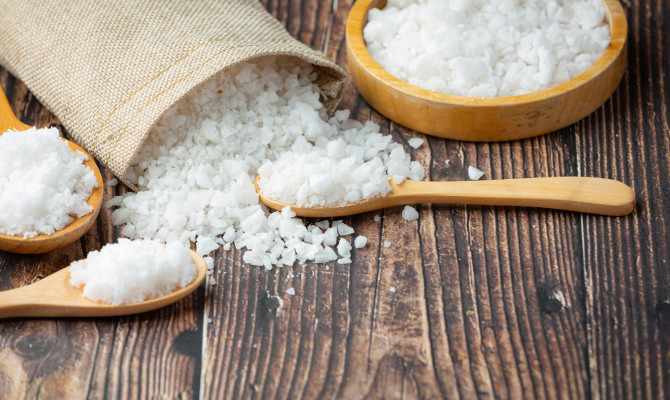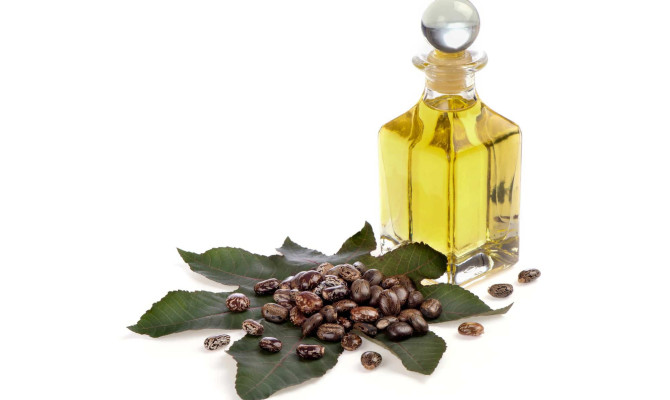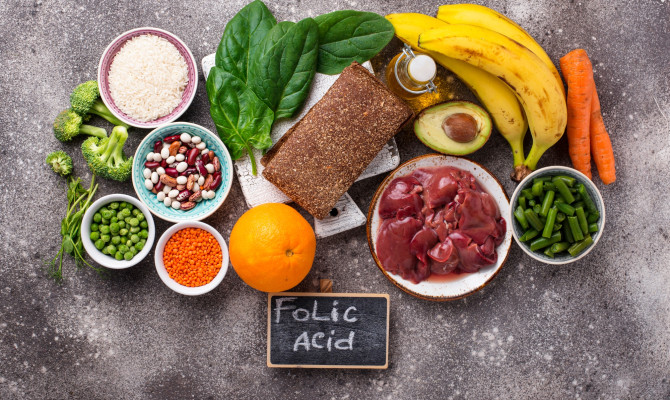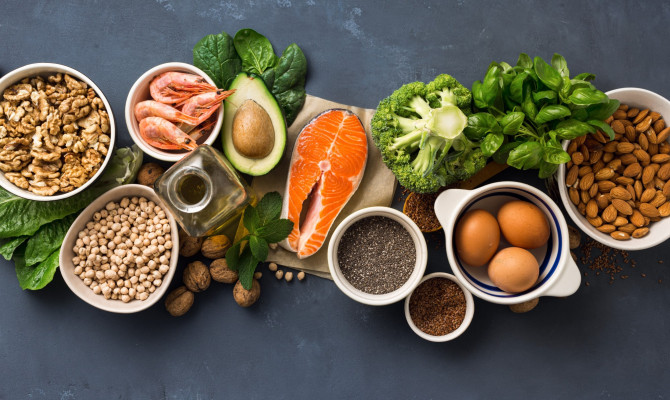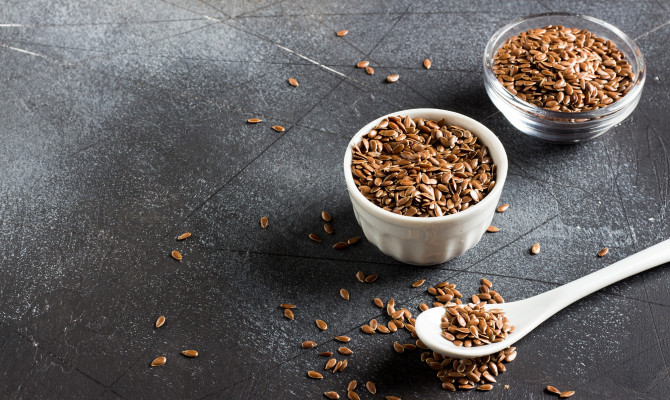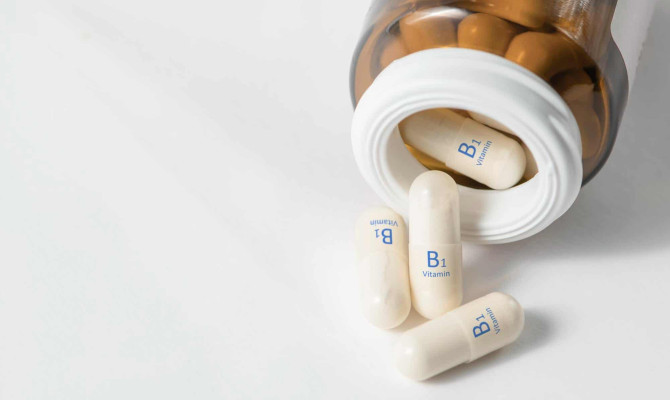Knowing all about creatine

- Creatine
- 16 Aug 2023
Overview
What is Creatine ?
Creatine is a natural substance found in the body. The skeletal muscles hold the majority of them. They are also present in cells with high energy requirements, such as those in the heart muscles, liver, kidney, inner ear, intestinal lining, sperms, and eye photoreceptors. The body mainly receives it from red meat and fish, while it is additionally produced in the kidneys and liver and sent to the skeletal muscles for use.

Facts
Facts about creatine
- A French chemist, Michel Eugène Chevreul, was the first to discover it in 1832.
- The Greek term for meat is where its name originates.
- It is primarily generated in the human body in the liver using portions from three different amino acids: glycine, arginine, and methionine.1Facts| Researched based study from Nlm.nih.gov
- The skeletal muscles eventually store 95% of it, with the remaining 4% going to the brain, the heart, and the testes.1Facts| Researched based study from Nlm.nih.gov
- It is predominantly stored as phosphocreatine in the muscles of the body.
- It is eliminated from the body as creatinine.
- To maintain normal levels, our body has to eliminate the stored creatine every day; the amount depends on an individual’s muscle mass.1Facts| Researched based study from Nlm.nih.gov
- Primarily found in animal sources; hence, vegetarians may have reduced creatine levels in their systems.
- Supplements derived from synthetic creatine have a higher creatine content than food sources.
Biological role
Biological role of creatine
Creatine’s functions in the human body can include:2Biological role| Researched based study from Nlm.nih.gov
- Generates ATP, which is a kind of energy for cells.
- Constantly supplies energy to cells with high energy needs.
- Helps by giving muscles the energy they need to contract.
- It also functions as a neuroprotective agent.
Sources
Sources of creatine
Food source
- Animal source – red meat, chicken, fish, and milk.
Human bodies can make creatine from amino acids like methionine, glycine and arginine.
- Arginine – milk, cheese, sesame, pumpkin, walnuts, almonds, beans, peas, and seaweed.
- Methionine – milk, eggs, tofu, ricotta cheese, quinoa, Brazil nuts, and white beans.
- Glycine – milk, cheese, pistachios, spirulina, pumpkin seeds, sesame seeds, seaweed, and spinach.
Supplements
- A wide range of sports supplements, including creatine.
- Skeletal muscle typically contains 120 mmol/kg of creatine, but supplementation can increase this amount to 160 mmol/kg.
Dosage
Required dosage
- An individual would require roughly 1-3 grams of creatine daily to keep up typical creatine storage without supplementation.
- Larger athletes who train hard might need to get in five to ten grams of creatine daily to keep their stock.3Dosage| Researched based study from Biomedcentrals.com
- To stay healthy, people who can’t manufacture creatine due to a medical issue might have to consume 10–30 g daily.
- In adults, a loading dosage of up to 20 grams is taken orally once for a maximum of seven days, followed by a daily maintenance dose of 2.25–10 grams taken orally for up to 16 weeks.
Safe dose in adults
- Dosage up to 25 grams/day for 14 days.
- Lower doses – 4-5 grams/day for 18 months.
- Dosage up to 10 grams/day for five years.3Dosage| Researched based study from Biomedcentral.com
Safe Dose in Children
- 5 to 18 years – 3-5 grams/day for 2- 6 months.
- 2 to 5 years – 2 grams/day for six months.
- Infants – 0.1 – 0.4 grams/kg daily for six months.
Benefits

Health Benefits
Creatine has the following benefits
Rare creatine-metabolizing disorders
- Oral creatine supplements may raise brain creatine levels in kids with certain creatine deficiencies, such as GAMT or AGAT ( Guanidinoacetate Methyltransferase Deficiency)4Benefits| Researched based study from Mayoclinic.org
Creatine deficiency
- Elderly persons and vegetarians may benefit from taking it to improve their cognitive well-being and standard of life.
Athletic performance
- Athletes and bodybuilders commonly take creatine to increase strength and performance.4Benefits| Researched based study from Mayoclinic.org
Strengthens muscles
- Benefiting both older and younger individuals.
Injury prevention
- May lower the incidence of dehydration, cramping in the muscles, and injuries that affect bones, muscles, tendons, ligaments, and nerves.
Brain health
Particularly in elderly persons it enhances cognition and promote brain’s health .
Skin aging
- When combined with folic acid, decreases UV damage and minimizes wrinkles due to aging. 4Benefits| Researched based study from Mayoclinic.org
Bone health
May help balance age-related drops in skeletal muscles, sarcopenia, and the density of bone.
In medical disorders
Creatine may also supports in overall well being of people suffering from
- Brain or spinal cord injuries 5Benefits| Researched based study from Nlm.nih.gov
- Muscular dystrophy
- Diabetes
- High cholesterol/triglyceride levels
- Pulmonary disease 6Benefits| Researched based study from Nlm.nih.gov .
Improve glucose metabolism
- Primarily when paired with physical activity, improves glucose metabolism in both healthy and diabetic patients7Benefits| Researched based study from Nlm.nih.gov
Deficiency
Deficiency reasons
- Vegetarianism or veganism may result in creatine deficiency.
- Genetic reason – Creatine deficiency diseases (CCD) are genetic errors in creatine metabolism and transportation8Deficiency| Researched based study from Nlm.nih.gov
- Deficiencies can result from errors in any of these two enzymes, GAMT or AGAT.
- To get to the brain, creatine needs a specific transporter. The third CCD is the result of a flaw in this transporter CRTR.
Symptoms
Deficiency symptoms
- Developmental delay.
- Social phobia
- Hypotonia
- Seizures.
- Intellectual disability or cognitive malfunction
- Movement disorders, including chorea-athetosis and dystonia.
- Behavior issues, including aggression, autistic spectrum disorder, and attention deficit or hyperactivity disorder.
Side effects
Side effects of creatine
Overdose of creatine may cause the following side effects
- Weight gain. (Water retention)
- Stomach pain.
- Stomach upset.
- Nausea.
- Diarrhea.
- Muscle cramps.
- Bloating.
- High blood pressure
- Liver dysfunction
- Kidney stones
- Kidney damage
Precautions
What precautions should one take?
Caution is advised for those who have the following conditions
- Kidney disease.9Precautions| Researched based study from Nlm.nih.gov
- Liver disease.
- Diabetes.
- Hypertensive patients.
- Pregnant or breastfeeding women.
- Gastrointestinal problems.
- Deep vein thrombosis (DVT).
- Electrolyte imbalances.
- Bipolar disorder.
- Athletes aiming for specific weight categories.
Interactions
Interactions with other medicine
Creatine, if taken with certain medications, may show interactions:
Nonsteroidal anti-inflammatory drugs (NSAIDs)
- Creatine may raise the risk of renal injury when combined with NSAIDs such as ibuprofen and naproxen.11Interactions| Researched based study from Nlm.nih.gov
Caffeine
- May interfere with the body’s ability to utilize creatine, and combining it with creatine may raise the chance of dehydration. Parkinson’s disease could advance more quickly as a result.10Interactions| Researched based study from Nlm.nih.gov
Diuretics or water pills
- When taking creatine and diuretics like furosemide, the risk of dehydration and renal injury may increase.
Cimetidine (Tagamet)
- Creatine with cimetidine (Tagamet) can raise the chance of kidney damage.11Interactions| Researched based study from Nlm.nih.gov
Probenecid
- When used with creatine, the risk of kidney damage is increased.11Interactions| Researched based study from Nlm.nih.gov
Outlook
The Bottom line
Although the body produces creatine independently, one must maintain their levels by eating a healthy diet every day. Creatine is one of the most affordable, efficient, and secure supplements consumed by athletes and non-athletes to increase power, strength, muscle mass, and performance. Using supplements may be especially beneficial for elderly persons and vegetarians who may not be getting enough creatine from their diets. However, it is best to consult a physician or a registered dietician to determine an individual’s right product and dosage.
Any feedback on this article?
 This Articles content was accurate
This Articles content was accurate Very Informative Article
Very Informative Article I have a question or a comment
I have a question or a comment
 This article contains inaccurate content
This article contains inaccurate content This article was not helpful
This article was not helpful I have a question or a comment
I have a question or a comment
We appreciate your helpful feedback!
Checkout our social pages
References
-
National Library of Medicine
International Society of Sports Nutrition position stand: creatine supplementation and exercise | Facts
-
National Library of Medicine
Creatine | Biological role
-
Bio Med Central
International Society of Sports Nutrition position stand: safety and efficacy of creatine supplementation in exercise, sport, and medicine | Dosage
-
Mayo Clinic
Creatine | Benefits
-
National Library of Medicine
Prophylactic Creatine Administration Mediates Neuroprotection in Cerebral Ischemia in Mice | Benefits
-
National Library of Medicine
Creatine supplementation during pulmonary rehabilitation in chronic obstructive pulmonary disease | Benefits
-
National Library of Medicine
Potential of Creatine in Glucose Management and Diabetes | Benefits
-
National Library of Medicine
Creatine Deficiency Disorders | Deficiency
-
National Library of Medicine
The effects of the recommended dose of creatine monohydrate on kidney function | Precautions
-
National Library of Medicine
Caffeine and progression of Parkinson’s disease: A deleterious interaction with creatine | Interactions
-
Mount Sinai
Creatine | Interactions













